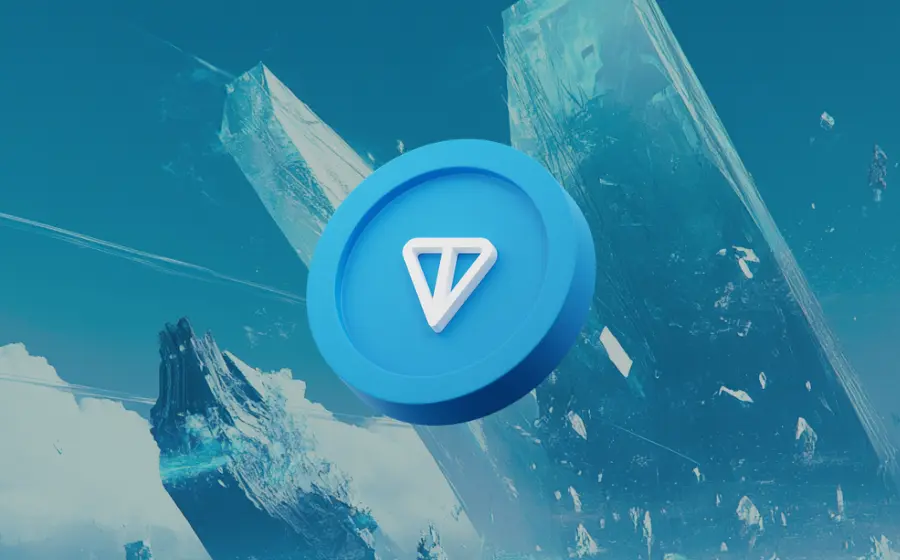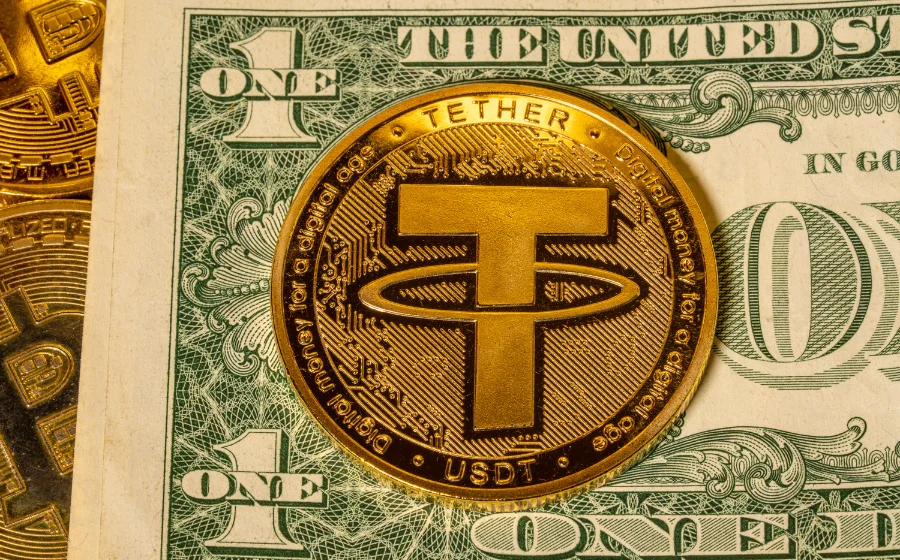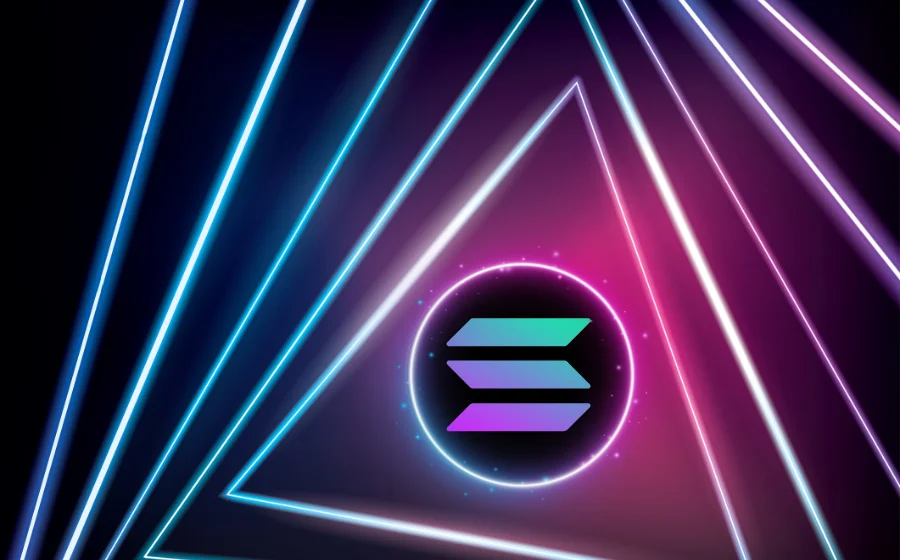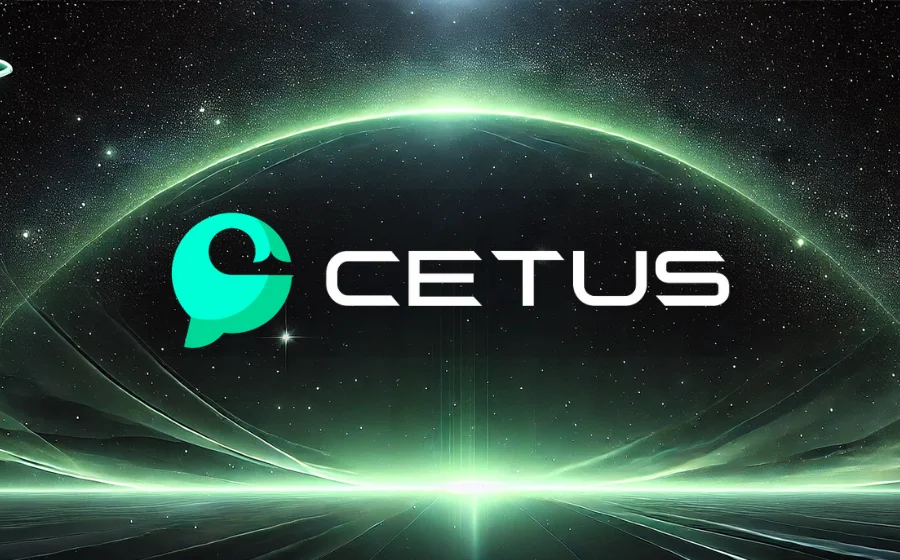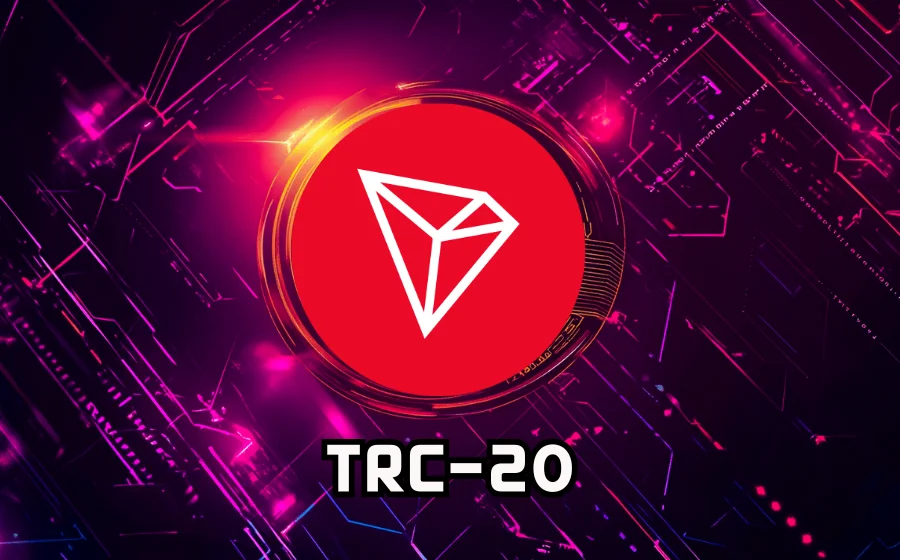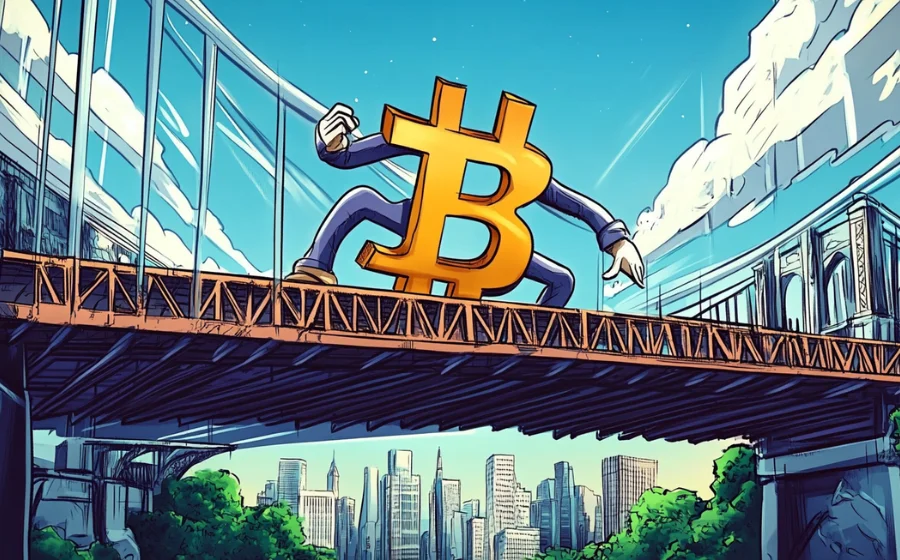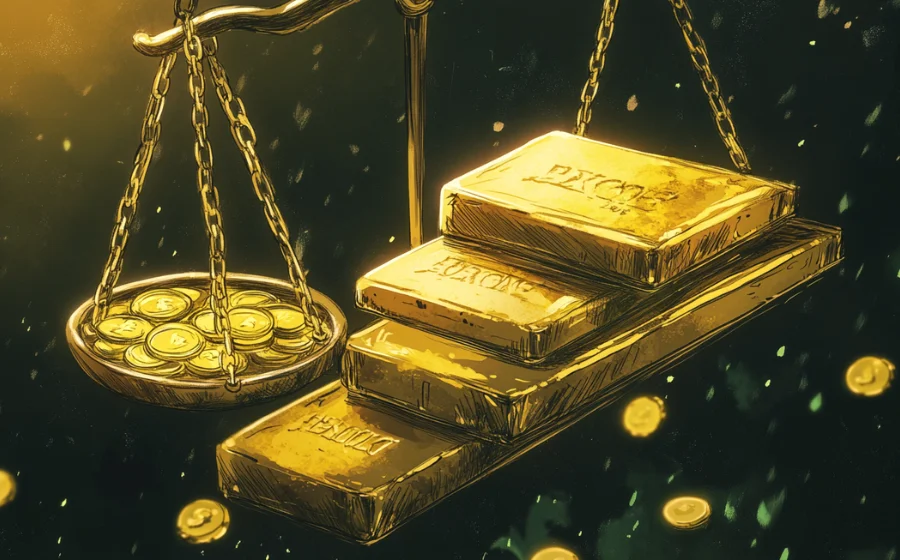
KEYTAKEAWAYS
- Gold Tokenization transforms traditional gold investment
It allows users to own and trade fractional gold on blockchain platforms, offering greater liquidity and accessibility. - Tokenized gold combines blockchain transparency with real-world backing
Ownership records are immutable and verifiable, while the physical gold remains securely stored with custodians. - Investors should remain cautious of platform and regulatory risks
While efficient, tokenized gold still faces crypto market volatility, custodian trust issues, and evolving global regulations.

CONTENT
Gold Tokenization brings gold into the blockchain era, offering accessible, efficient, and transparent ownership—while navigating challenges like crypto volatility and custodian risk.
WHAT IS GOLD TOKENIZATION?
Gold Tokenization is redefining the way we interact with one of the world’s oldest and most trusted assets—gold—by bringing it into the digital age.
For centuries, gold has served as a reliable store of value. However, owning physical gold comes with its own set of challenges:
- Requires secure and often costly storage
- Limited liquidity, making it difficult to quickly buy or sell
- Complicated and sometimes discounted liquidation process
These drawbacks are exactly what Gold Tokenization seeks to solve.
🪙 Understanding Gold Tokenization
Gold Tokenization refers to the process of converting physical gold into blockchain-based digital tokens. Each token represents a specific quantity of physical gold—often stored in insured vaults—typically at a 1:1 ratio.
In simple terms: one gold token on-chain equals one gram of physical gold off-chain.
This model allows investors to buy, sell, and trade gold tokens just like other cryptocurrencies, while the physical gold remains securely stored. It simplifies the entire gold trading experience, making it faster, more efficient, and borderless.
📌 Why Is It Gaining Attention Now?
With increasing macroeconomic uncertainty, inflationary pressures, and geopolitical tensions, gold prices have been surging—recently breaking above $3,300 per ounce.
In this environment, more investors are turning to gold for its safe-haven properties. And with that, Gold Tokenization is emerging as a modern and accessible way to invest in the precious metal.
💡 Similar to Stablecoins
Gold Tokenization follows a model similar to stablecoins. The price of a gold token is pegged to the market value of gold, offering both price stability and digital utility.
This hybrid nature makes tokenized gold a unique blend of traditional asset security and blockchain flexibility.
As of now, the total market value of tokenized gold has surpassed $2 billion, and the sector continues to grow steadily.
>>> More to read: Tether Gold (XAUt) | Gold Innovation On The Blockchain
HOW GOLD TOKENIZATION WORKS
Gold Tokenization follows a similar process to the tokenization of any real-world asset, though the specific steps may vary depending on the type of asset, its use case, and the issuer involved.
📌 The Gold Tokenization Process
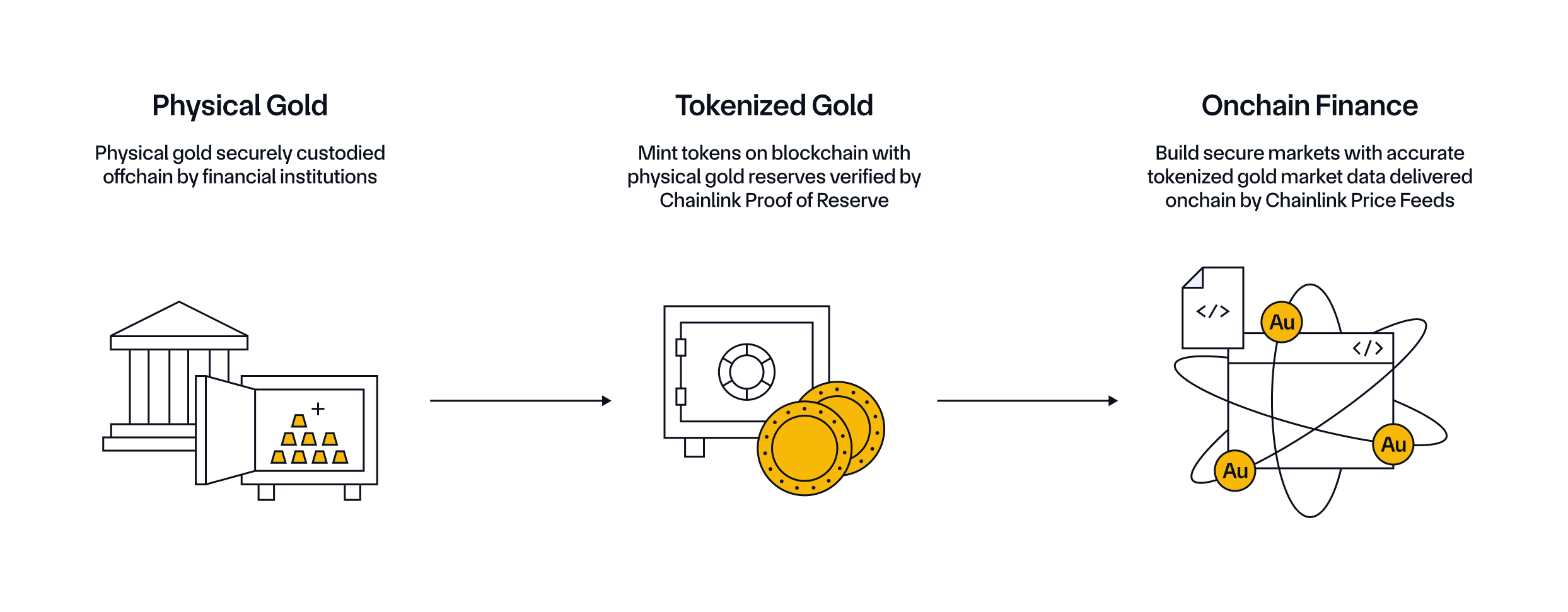
In general, the process of tokenizing gold includes the following steps:
1. Purchasing Physical Gold
The issuing entity—typically a company or institution—must first acquire a certain quantity of physical gold. This may be in the form of 1-ounce gold coins or 1-kilogram gold bars. These assets are then securely stored in third-party vaults with high levels of security and insurance.
2. Tokenizing the Gold
Next, the issuer creates digital tokens on a blockchain platform, where each token represents a fixed quantity of physical gold—commonly one gram or one ounce.
This process includes:
✅ Defining the token standard: For example, ERC-20 or ERC-721, along with minting mechanics and the initial supply.
✅ Selecting a blockchain: This could be a public blockchain, private chain, Layer 2 network, or any DLT-based infrastructure.
✅ Providing verification data: This may include proof of reserves, on-chain price oracles, and KYC/AML compliance.
✅ Enabling cross-chain compatibility: Ensures broader liquidity by making the tokens usable across various blockchain ecosystems.
✅ Issuing the tokens: Deploying smart contracts on-chain and minting the tokenized gold accordingly.
3. Verifying Ownership of Gold Tokens
Blockchain technology guarantees transparent and real-time verification of token ownership—which inherently represents ownership of the physical gold. When a token is transferred or sold, the underlying ownership of the corresponding gold also changes hands.
These tokens are stored in digital wallets and can be traded just like any other cryptocurrency. This structure allows investors to easily trade fractional amounts of gold, eliminating the need to buy or sell entire bars or coins.
>>> More to read: Gold and Bitcoin: Recent Price Trends and Divergence Analysis
BENEFITS OF GOLD TOKENIZATION
Now that we’ve explored what Gold Tokenization is and how the process works, let’s take a closer look at the key advantages it offers to modern investors:
✅ Greater Accessibility
Gold tokens allow people to invest in fractional amounts of gold. Instead of purchasing a full ounce or a whole gold bar—which can be expensive—investors can buy small denominations in tokenized form. This significantly lowers the entry barrier and democratizes access to gold ownership.
✅ Enhanced Transparency
Because Gold Tokenization operates on the blockchain, it provides a transparent and immutable record of ownership. This enables real-time auditability, provenance tracking, and clear accountability. Token holders can verify the backing of the asset at any time, enhancing trust and confidence in the system.
✅ Improved Liquidity
Traditional gold markets can be slow and cumbersome—especially for retail or small-scale investors. With tokenized gold, trading becomes fast, global, and available 24/7. The ability to buy and sell gold tokens on various digital exchanges ensures deeper liquidity and a smoother trading experience.
✅ Greater Efficiency and Lower Costs
Tokenized gold addresses several inefficiencies associated with physical gold ownership:
- No storage headaches: The physical gold is securely stored by trusted custodians, removing the need for individuals to manage insurance, safekeeping, or logistics.
- Reduced transport risk: Since transactions are digital, there’s no need to physically move gold, eliminating the risk of loss or theft during shipping.
- Lower transaction fees: Smart contracts automate backend processes, reducing settlement times and cutting down on operational costs.
For institutions or enterprises managing large volumes of gold, Gold Tokenization offers a scalable and streamlined solution for tracking and transferring assets across borders—without the friction and expense of traditional systems.
>>> More to read: Bitcoin vs. Gold: Which is the Better Investment?
CHALLENGES AND RISKS OF GOLD TOKENIZATION
While Gold Tokenization introduces a more efficient and accessible way to invest in gold, it is not without its challenges. Below are some of the key risks that investors should be aware of:
✅ Volatility of the Crypto Market
Although gold tokens themselves are typically pegged to the price of physical gold and are relatively stable, they are traded on cryptocurrency platforms known for high volatility. This market environment can indirectly affect the liquidity and short-term price behavior of tokenized gold, particularly during times of extreme market stress.
✅ Blockchain-Specific Risks
Despite the inherent security of blockchain technology, it is not immune to certain technical vulnerabilities, including:
- Smart contract bugs or flaws
- Hacks and cyberattacks
- Network outages or protocol upgrades gone wrong
Any such incident can compromise the stability, availability, or integrity of gold tokens and the platforms they rely on.
✅ Custodian Risk
The value of a gold token is derived from the physical gold it represents, which is typically stored by a third-party custodian. This creates a trust dependency:
If the custodian is mismanaged, becomes insolvent, or fails to operate transparently, investors may lose access to their underlying assets—even if they still hold the digital tokens.
✅ Regulatory Uncertainty
Gold Tokenization sits at the intersection of precious metals and blockchain technology—two domains that are subject to different and often evolving regulations. The lack of a unified legal framework means:
- Legal status may vary significantly between countries
- Certain jurisdictions may restrict the trading or issuance of tokenized gold
- Regulatory changes could impact platform operations or user access
▶ Buy Crypto at Bitget
ꚰ CoinRank x Bitget – Sign up & Trade!

